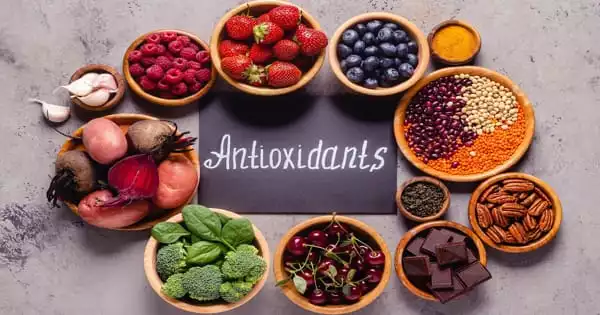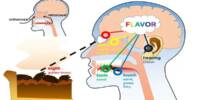Oxidation is a chemical reaction that happens almost everywhere in nature and involves the transfer of electrons from one atom to another. However, when it comes to biology and our health, we are only interested in a subset of these processes. We are particularly concerned about the prevalence of so-called “free radicals.”
According to a study published in the online issue of Neurology®, the medical journal of the American Academy of Neurology, people with higher levels of antioxidants in their blood may be less likely to acquire dementia.
The study discovered that those with the greatest amounts of the antioxidants lutein, zeaxanthin, and beta-cryptoxanthin in their blood were less likely to acquire dementia decades later than people with lower levels of the antioxidants. Lutein and zeaxanthin are present in green, leafy foods such as kale, spinach, broccoli, and peas. Fruits that contain beta-cryptoxanthin include oranges, papaya, tangerines, and persimmons.
“Extending people’s cognitive functioning is an essential public health concern,” stated study author May A. Beydoun, PhD, MPH, of the National Institutes of Health’s National Institute on Aging in Baltimore, Maryland. “Antioxidants may help protect the brain from oxidative stress, which can cause cell damage. Further studies are needed to test whether adding these antioxidants can help protect the brain from dementia.”
High vitamin C and vitamin E intake was associated with a lower risk of Alzheimer’s disease. Antioxidant substances including vitamin E, C, and beta carotene are among the body’s natural defense systems against this type of harm.
Marianne J. Engelbert
The study included 7,283 adults who were at least 45 years old at the start of the trial. At the start of the study, they received a medical examination, an interview, and blood testing for antioxidant levels. They were then tracked for an average of 16 years to see who acquired dementia.
The individuals were placed into three groups depending on their blood antioxidant levels. People with the greatest levels of lutein and zeaxanthin were less likely to acquire dementia than those with lower levels. Every standard deviation rise in lutein and zeaxanthin levels, around 15.4 micromols/liter, was associated with a 7% reduction in dementia risk. For beta-cryptoxanthin, every standard deviation increase in levels, approximately 8.6 micromols/liter, was associated with a 14% reduced risk of dementia.
“It’s important to note that the effect of these antioxidants on the risk of dementia was somewhat reduced when we took other factors such as education, income, and physical activity into account,” Beydoun said. “It’s possible that those factors may help explain the relationship between antioxidant levels and dementia.”
The first study followed almost 5,000 men and women, all of whom were at least 55 years old, for an average of six years. At the start of the trial, none of the participants showed any signs of dementia. Six years later, 197 had dementia, with 146 having Alzheimer’s disease.

“High vitamin C and vitamin E intake was associated with a lower risk of Alzheimer’s disease,” writes epidemiologist Marianne J. Engelbert, MD, MSc, of Erasmus Medical Center in Rotterdam, Netherlands.
This association was particularly obvious among smokers; for them, beta carotene and flavonoids (another type of antioxidant) also appeared to have a protective impact. Those with a hereditary tendency to Alzheimer’s had no additional or decreased protection from the vitamins.
For almost four years, the second study followed 815 Chicago-area adults aged 65 and up. This study reveals that vitamin E from food, but not other antioxidants, lowers the incidence of Alzheimer’s disease. The preventive effect, however, was only discovered in participants who did not have the apoE4gene, which is a genetic predisposition to Alzheimer’s; 131 people developed Alzheimer’s throughout the four-year trial period.
Antioxidant substances including vitamin E, C, and beta carotene are among the body’s natural defense systems against this type of harm. Grains, nuts, milk, and egg yolk are all good sources of vitamin E. Citrus fruits, kiwi, sprouts, broccoli, and cabbage are high in vitamin C. Kale, carrots, broccoli, and spinach are high in beta carotene.
One weakness of the study is that antioxidant levels were based on a single blood level assessment, which may not reflect people’s levels across their lifetimes. The National Institute on Aging, which is part of the National Institutes of Health, funded the research.
















